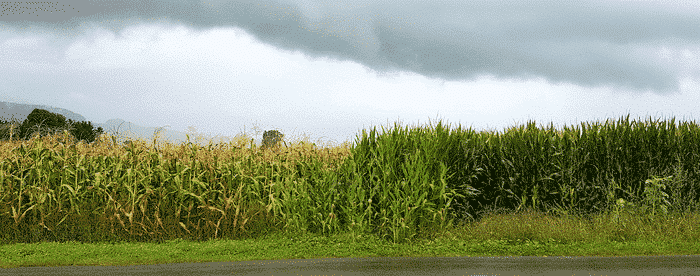Industry News is geared to seed professionals and delivers the people, industry, business and product news you need to know. Submissions are welcome. Email us at·news@issuesink.com.
People News
AgReliant Genetics has hired Ivan Barrero as the company’s newest corn breeder at its Kirkland, Ill., research facility, succeeding Bill Koehring who is retiring this year. Barrero will specialize in corn breeding for the company’s 95- to 105-day relative maturity market. Barrero’s hiring follows the company’s recent selection of Chris Clucas as director of northern breeding. Clucas will also be based at the Kirkland research station.
John Brutty has joined Burrus Hybrids as general sales manager with overall responsibility for sales force innovation, dealer relations and customer services. Previously employed by Cargill AgHorizons as a sales manager for 10 years, Brutty was responsible for coordinating marketing services and crop insurance.
Landmark Services Cooperative has named Mike Elder its chief operating officer. Elder will oversee all cooperative operations including safety, environmental health and the Landmark Logistics division. Elder joined the Landmark team in 2003 following the merger of Landmark Services Cooperative and Union Cooperative, serving as interim COO and vice president of health and safety for the cooperative.
Product News
Clariant has launched its new Agrocer pigments for seed coloration—the first dedicated range of colorants for the agricultural industry. The unique offering will provide ease of color choice and purchasing for seed companies and manufacturers of seed treatment products, in particular those looking to differentiate their brands amid growing competition in this market. According to Clariant, the high-quality pigments are easy to apply at any treatment stage and can also be used in fertilizers and pesticide products.
FMC Corp. has entered into an agreement with Belchim Crop Protection which grants FMC an exclusive license to develop, register, manufacture and sell the patented fungicide valifenalate in mixtures in North America, Latin America and a select number of countries outside of the Americas. Approved for use on high-value crops such as grapes, tomatoes and other vegetables, valifenalate is a dipeptide-class fungicide effective against various types of mildew.
Integrated Coating and Seed Technology Inc., a leader in coatings and seed technology serving the vegetable, ornamental and agronomic seed business, has announced the commercial introduction of AlphaKote, a newly developed lettuce pellet. According to the company, AlphaKote is a pelleted seed product with a moisture tolerance designed specifically for coastal climates, yet it also has the flexibility to perform in a broad range of environmental and agricultural applications.
Business News
Wilbur-Ellis Company, a leader in crop production technology and the distribution and marketing of plant protection, seed and nutritional products, has acquired the assets of Blue River Ag Supply LLC in Edgerton, Wisc. The company also acquired the assets of G & G Spray Service Inc. as part of the purchase. The Wisconsin location services customers from southern Wisconsin to northern Illinois and will now be part of the Wilbur-Ellis Great Lakes operations.
DLF-Trifolium A/S, a Danish world market leader in temperate grass and clover seed, has signed an agreement for the acquisition of Pickseed Canada and Pickseed USA, including Seed Research of Oregon, by the DLF-Trifolium Group. Pickseed is a North American leader in the development, production and distribution of turfgrass and forage crops seeds. Pickseed has eight locations including offices, warehouses, plants, and research and distribution facilities across Canada and Oregon. Pickseed operates under the Pickseed, Mapleseed, Seed Research of Oregon and TurfOne brand names.
Syngenta and U.K.-based Rothamsted have agreed to form a multi-million pound scientific research partnership to develop high yielding, environmentally sustainable wheat. During the next five years, the collaboration will seek to integrate a wide range of technologies and approaches in areas such as improved crop genetics, crop protection strategies, plant architecture, soil and root interactions, and disease control.
Industry News
“People need to tap unused plants to feed the world in the near future,” says Cornell University plant geneticist Susan McCouch in a recent article in the journal Nature. According to McCouch, the biodiversity stored in plant gene banks, coupled with advances in genetics and plant breeding, may be the key to meet the demands for more food in the face of climate change, soil degradation, and water and land shortages. “Gene banks hold hundreds of thousands of seeds and tissue culture materials collected from farmers’ fields and from wild, ancestral populations, providing the raw material that plant breeders need to create crops of the future,” says McCouch.
Honey bees that consume pollen containing amounts of commonly used fungicides at levels too low to cause the bees’ deaths still may be left more susceptible to infection by a gut parasite, according to U.S. Department of Agriculture and University of Maryland research published in PLOS ONE. The report highlighted the need for additional research to determine risks presented by pesticides, along with the need for improved collaboration and information sharing. “Our study highlights the need to closely look at fungicides and bee safety, as fungicides currently are considered safe and can be sprayed during the bloom on many crops,” says co-author Dennis vanEngelsdorp of the University of Maryland.












